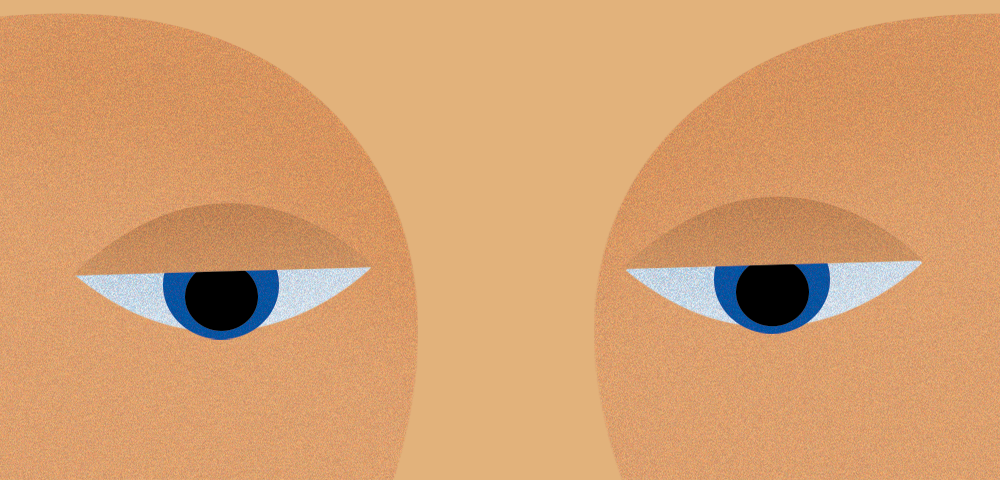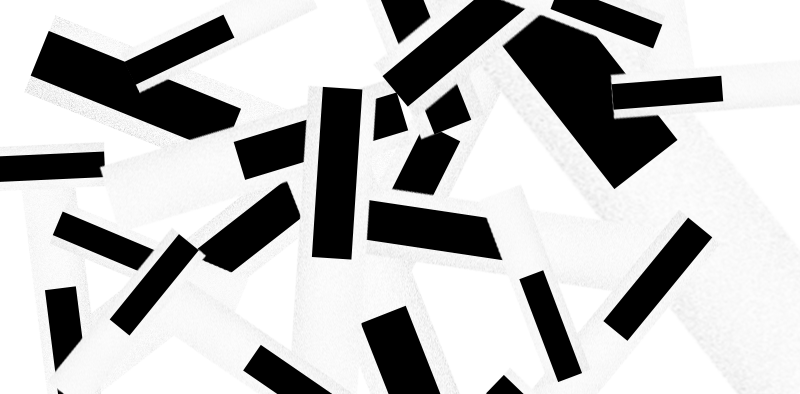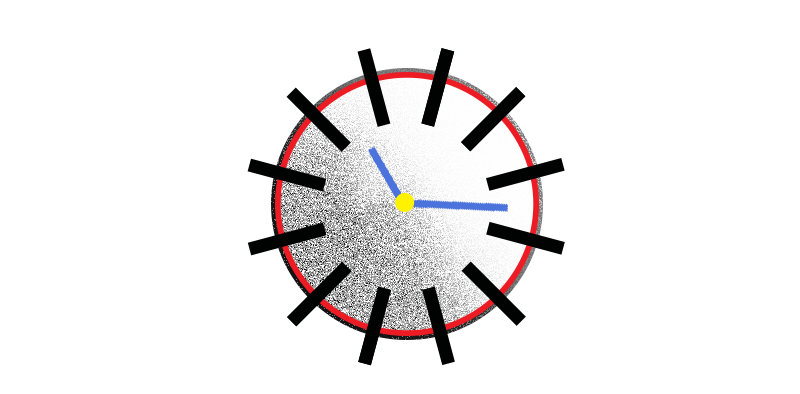There we sat, Mom and I, side by side on the piano bench. A mirror on the panel above the keyboard reflected our fingers, perched to perform. Deadly piano-playing duo? Not quite. You see, I had decided to teach Mom to play the piano. She was in her mid-50s; I was 13.
Perhaps a grade eight history-teaching project had infected me with the teaching bug. More likely it was connected to Dad’s second bout with cancer. At the hospital, the radiation had zapped his tumor. Now he was back home and had returned to work, but Mom and I were left with the aftermath of his life/death ordeal. We needed a diversion to keep us sane in this sudden change to supposedly safe routine. Besides, my music credentials were impeccable — five years of learning Bach, Beethoven, and Chopin on our pink Roxatone-coated piano.
“FACE,” I pointed to the white keys straddling the middle of the keyboard, “That’s middle C.” I followed the methods of my own piano teacher, Miss Garlick.
Every Saturday morning at ten a.m., I walked four and a half blocks to private lessons in Miss Garlick’s basement studio. Despite her name, she exuded sweetness and competence when her fingers flew along the piano keys of her black upright or black baby grand. Her pink puffy cheeks and short grey hair gave her the appearance of everybody’s grandmother.
“One, two, three, play it again,” Miss Garlick said, as I stretched tiny hands across eight white keys and two sets of black keys in between. Atop the baby grand, the metronome swung its pendulum, as if ticking away the time left for Dad.
“One, two, three, play it again,” I told Julia. Wearing my teacher hat precluded calling her “Mom.” Miss Garlick’s music books contained directions, and I stole them without any guilt. In our first book, Michael Aaron Piano Course Grade One, Miss Garlick had scribbled, “Keep EYES up on music.” Beside her “Do not look down and play slowly at first,” I added, “Count evenly.” On another page I gave Julia a choice — “Try if you want.” Two pages later, with the “New Positions of the Left Hand” exercises, I crossed out “Sharon,” and scrawled, “Do not look down.”
If I looked down, I might be able to see the blacks and whites that life should dish out. Straight evil or straight good, no slimy wavering grey to leave me see-sawing in areas of the unknown. Stuck firmly in this unknown, like a fly to flypaper, was Dad’s cancer. The brain tumor had evolved a few years after the lung cancer was removed, the latter supposedly ending any replay. Perhaps if I hit the correct black and white keys while not looking down I might marry the straightforward with the uncertainty and come up with a healthy future for Dad.
What did Dad think when he returned from work and heard us pounding the keyboard? Did he understand that it was a way Mom and I tried to ward off any more cancer scares or worse, cancer realities? Solidarity in two. Maybe Mom and I should have done the piano lessons during his hospital stay, if only to distract us. But that would have been unthinkable. Because when Dad lay supposedly dying, Mom and I centered on him — each day could be his last. Besides, we already had a distraction — unwanted — underfoot — Mom’s older sister, Aunt Rose, very religious and outspoken, staying to help during Dad’s hospital internment. When I opened the fridge door, my nose cringed at the sour smell emanating from inside — her favourite food, a slab of blue cheese. After dinner, her hands washed dishes while her mouth spewed diatribes on the evils of fluoridation, which was not yet done in Toronto’s drinking water. I’m sure it was her, not Mom, who started the rosary circle — the three of us joining together to say the rosary out loud for Dad.
Now with our family back to the usual three, instead of relief, every step Dad took, every word he spoke, drove me away. I couldn’t even eat or drink at the same table as him. He would pour himself a cup of tea and take it into his and Mom’s bedroom, to drink alone in silence.
Was I preparing for the inevitable?
Like an unacknowledged lifeline, Mom and I clung closer together as we continued our discordant piano routine. If we focused on our musical partnership, maybe the music spilling out into the house would touch Dad and magically march any leftover cancer away.
On another page of Mr. Aaron’s book, I became an illiterate schoolmarm, scribbling “It’s not staccato; play more like a run, only not too fast or two slow.” I wavered with “play what’s there” to the obtuse, “You must come in on the first note of each measure as soon as you say four on the measure before,” to the polite, “Please try not to look at the keys.”
Try not to look at what might happen tomorrow, next week, next year, or the worry might kill you. Mom and I could tie for first prize as Worry Wart, always pushing our minds through gymnastics about what could happen to Dad. When hopeful, I wrote “Recital Piece,” although Mom never played at a recital. I did, several staged by Miss Garlick for her students to plunk their chords and arpeggios. At eight, I breezed through my first annual concert. No music sheets allowed. Play from memory.
Until my final concert at Toronto’s Heliconian Club. That occurred at age 13, the same year I taught Mom to play the piano. The same year Dad was back home from the hospital. The same year I began treating him like an outcast.
While waiting to perform, fourth from the last, I hung around two old school friends and Kathy, another Miss Garlick student. We ventured out the club’s side door into the pre-Hippie Yorkville, with its Beat poetry and music, bearded young men and long-haired women sitting, smoking and drinking outside cafes. After returning to the club’s back room, my number was up.
Miss Garlick introduced me. Mom and Dad sat near the front of the audience. Dad dressed up in his best pin-stripe suit and his post-radiation hairstyle of white hair tufts couldn’t detract from my resolve to play it right. Besides, as Julia’s teacher, I had to set an example.
My pièce de résistance, Debussy’s Clair de lune (Miss Garlick’s choice), had provided more of a challenge than making sure I didn’t look down at the keys. My sweaty palms carried the sheet music as I walked through the doorway and onto the stage. A quick glance at the hushed audience sent my heart galloping; I reduced everyone to a blur and avoided looking at my parents as I sat down at the sleek black baby grand, arranged the music, put fingertips to keys, took several deep breaths, and began.
If I kept hitting the right blacks and whites, maybe Dad’s life would continue. My only choice was to slide right through, especially the muddle of chords on page five. Don’t look up. Don’t look down. Don’t look anywhere. Just keep going.
I struck a wrong chord. My hands froze a few inches above the keys. The audience breathed in silent anticipation. I didn’t dare look up at Dad. He would be so disappointed in his little girl. So I stayed still, my face hot for the hellfire I deserved.
“Turn the page.” Miss Garlick’s loud whisper carried from the back doorway, across the front of the audience, over to me.
My hands thawed. I turned the page and faked my way to the end. When completed, I stood. If anyone clapped, it was pure kindness. I had embarrassed myself and failed Mom. What kind of a teacher messed up playing at her own concert? And Dad? Jamming my fingers into the wrong chords had short-circuited the only way I could now connect with him. Worse, had my faux pas on the keyboard condemned his time on earth? Tick. Tick.
I continued piano lessons with Miss Garlick until I turned 15. Bopping along to the top 40 at teen dances, and listening to the Beatles with my friends, beat pounding chords in time to the metronome. But it was more than that. It was as if those discordant chords at the recital had eliminated any underlying hope that making music would wipe Dad’s brain clean from brain cancer. Mom did learn to play simple tunes on the piano. However, a few years after I started high school, she had no time for piano lessons. She had returned to work and Dad to the hospital on his final life run with brain cancer. This time nothing — radiation, surgery, or music — could save him. He died when I was 16, but not before we reconnected at the end.
He was living in what was then Riverdale Hospital, a warehouse for those waiting to die. It had become Mom’s and my practice to visit him almost daily there — me after school, her for most of the day. We sat in chairs beside his bed or if the nurse had helped him into a chair, we faced him in a semi-circle. There he sat in his red robe and black socks, legs crossed, right arm leaning on the armrest and right hand over the left in his lap. He stared through his glasses as if already in the next world. The cancer had stolen his ability to understand simple conversation. He could no longer connect directly to Mom or me. Now I didn’t hide away from him, in music or anything else. However, I had not yet arrived at a place where I felt comfortable talking to him beyond saying “Hello Daddy” and the other bland phrases that flow automatically from our mouths when someone close is dying.
But the day he died, I had a revelation.
Mom and I had taken a break from being physically present with Dad and had gone into the sunroom. We sat in silence absorbing the bright sunlight streaming through the windows and warming the bland green walls. Like magic. Like . . . but there was no music playing there or in my head. Something else was making an entrance inside. A voice. Dad? Had he managed to break through and connect? And why now, one year after I had stopped making music? Considering the message, perhaps the music had reached him, but he was waiting until he had something important to say.
“Go into your Dad’s room, now; he’s dying,” the voice said.
Third person. What did I expect when I had shunned Dad?
“Mom,” I said. “We have to go to Dad. Now!”
We stood and hurried along the hall to Dad’s room. In time to say our goodbyes. And for me to say, in my head, “I’m sorry Daddy I was so mean to you.”
He didn’t answer, but I was sure he heard me as he travelled from this life to the next.
Did Mom and I making music together actually help Dad finally get his release from cancer? It wasn’t the release that either Mom or I wanted, especially considering Mom’s life after Dad. She soon began her own unhealthy spiral downward, as if she had lost her anchor. I hid within myself, creating stories of different lives I could live. When I reached adulthood, I traded music-making for wordsmithing — from journalist to mystery novelist. Since fall 2014, I have been a member of the Literature Group of that same Toronto Heliconian Club.
The piano? It stood silent, but damn, if first Mom, then I, didn’t cart it along with each change in residence. Today, out of tune and tuned out of my life, it hovers in a basement corner, gathering the gray dust of neglect.
For now. •
All illustrations by Isabella Akhtarshenas.






